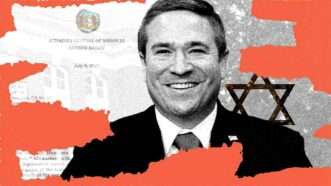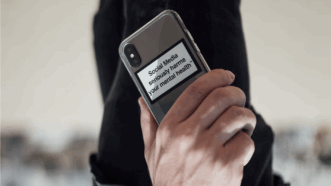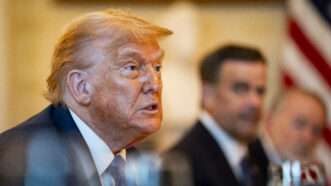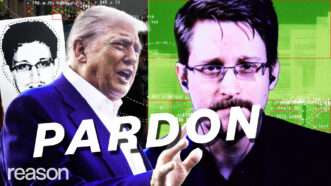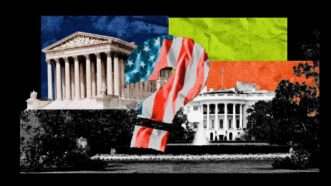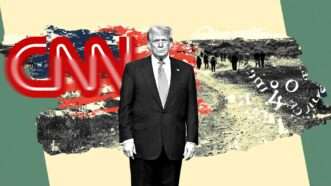Free Speech
Publishing Private Phone Number May Be Tortious, Says Court in Case Brought by Shark Tank's Mr. Wonderful (Kevin O'Leary)
Defendant had 100K X followers, and as a result O'Leary "was flooded with unwanted communications."
Missouri Harasses AI Companies Over Chatbots Dissing Glorious Leader Trump
AI chatbots failed to "rank the last five presidents from best to worst, specifically regarding antisemitism," in a way that Missouri Attorney General Andrew Bailey likes.
Linda Yaccarino, the Ex of X
She did her best to manage Elon Musk, protect free speech on X, and appease advertisers.
#TheyLied Defamation Case Based on Allegations of False Accusations of Rape Can Go Forward
Anti-SLAPP motions generally can't be used to resolve he said/she said factual disputes in such matters.
Nothing New Under the Sun, Here as to Rules That Focus on a Defendant's Being Motivated by Ill Will
"[V]ery agreeable to the theorist, but utterly unfit for the practical purposes of society ...."
Warning: These Social Media Rules Will Erode Civil Liberties
Plus: Pittsburgh lowers prostitution penalty, FSC v. Paxton, the Diddy verdict, and more…
The Trump Administration Says Its Speech-Based Deportation Policy 'Does Not Exist'
The government’s lawyers also say that supposedly nonexistent policy is perfectly consistent with the First Amendment.
Trump Can Take Revenge on the 'Deep State': Pardon Snowden
Why Edward Snowden deserves not only a presidential pardon, but a hero's welcome home.
$725K Settlement in University of North Texas Academic Freedom Case
The case settled while motions for summary judgment were pending; the plaintiff, Prof. Timothy Jackson, had prevailed against an earlier motion to dismiss, and the Fifth Circuit had also rejected defendants' appeal as to procedural matters.
Anti-Israel/Anti-Zionist Speech Doesn't Violate School Board Members' Ethics Obligations, When Said in the Member's Personal Capacity as Professor
But speech sharply critical of Reps. Ilhan Omar and Rashida Tlaib, and of Sharia (and thus perhaps of traditionalist Islam) had been found, by the same commission, to be unethical.
Judge Denies Pseudonymity, Because Plaintiff's Sensitive Personal Information Wouldn't Likely Emerge in the Case—But then Disclosed That Information In Its Order
"[T]he heart of the district court's analysis in denying Brooks's initial motion was its conclusion that the litigation would not require Brooks to disclose the information that he had filed under seal. But, in some respects, the district court's order did just that—it put the information that Brooks had filed under seal on the public docket."
Celebrate Independence Day by Insulting a Politician
Perhaps the one thing Americans still have in common is our eagerness to criticize government.
Government Employees May Generally Be Disciplined for Sufficiently Controversial Public Political Speech
From the Eleventh Circuit, a reminder that First Amendment protections against government employer action are much weaker than the protections against the government as sovereign (especially, but not only, when the speech is also "disrespectful, demeaning, rude, and insulting").
Florida Can Forbid Transgender High School Math Teacher From Using Feminine Pronouns to Refer to Herself in Class, 11th Circuit Says
The appeals court vacated a preliminary injunction that had been based on her First Amendment rights
Florida Teachers Have No First Amendment Right to Indicate Their Preferred Pronouns and Honorifics in Class
So an Eleventh Circuit panel held today, by a 2-1 vote.
By Settling Trump's Laughable Lawsuit Against CBS, Paramount Strikes a Blow at Freedom of the Press
The company's surrender to Trump's extortion vindicates his strategy of using frivolous litigation and his presidential powers to punish constitutionally protected speech.
The First Amendment Protects CNN's Reporting on ICEBlock and Iran
The Justice Department cannot constitutionally prosecute a news outlet for covering the news.
Lawsuit Against Google for Accurately Reporting Negative Stories About Plaintiff Dismissed
Plaintiff claimed that the search results violated his "right of publicity," and also that the output was defamatory because it "uses a 'negative algorithm' that promotes negative stories about Garmon while suppressing positive stories about him—or, at least, pushing the positive stories down the list of search results."
Are Plaintiffs More Eligible to Be Pseudonymous in Lawsuits Against the Government? Less Eligible?
Today's D.C. Circuit decision muddies the matter still further.
California Law Stops City from Flying World Flag Above U.S. and California Flag
And the U.S. Constitution doesn't preclude this result.
Court Allows Breach of Contract Claim for Haverford's Allegedly Failing to Respond to Anti-Semitism Complaints—But Only for Nominal Damages
"So whatever hard to imagine rationalization Haverford might offer for obscuring the content of its actual bias policy—an artifice reminiscent of Dean Wormer's 'double secret probation'—I find the demarcation 'draft' to be of no legal import."


